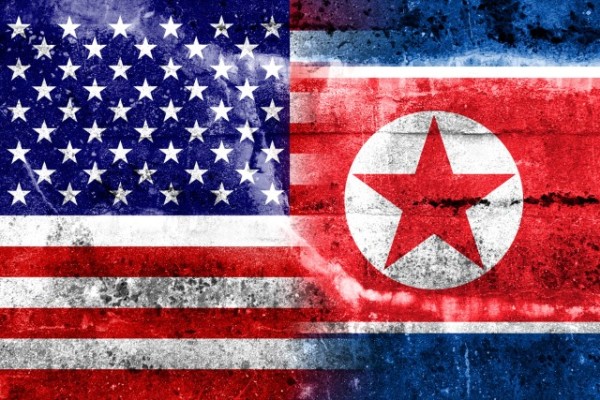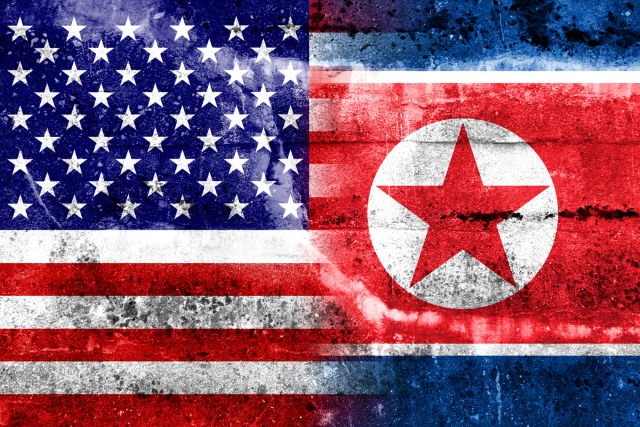
On Super Bowl Sunday, while the majority of the American public was busy drinking a cold beer and eating chicken wings, watching the Denver Broncos defeat the Carolina Panthers, no one was aware, until much later, that North Korea placed a satellite that passed over the Super Bowl stadium, about an hour after the game ended. North Korea claims that this was their fourth successful launch. Many state this development to be of moderate to severe concern, stating that “Allies like Japan, South Korea, the Philippines and Australia are watching to see how the U.S. reacts to these threats. If the U.S. can’t stand up against nations like North Korea, how is it going to stand up against the likes of China?”
North Korea has previously vowed to place more satellites in space, having come under fire for doing so after “most in the international community viewed” the launch “as a disguised ballistic missile test,{which} violated multiple United Nations resolutions banning the nuclear-armed country from the use of ballistic technology.” With the idea that North Korea does not seem to pay heed and does not seem to care about other countries concerns and sanctions, really puts into perspective the type of danger that the United States might be in, especially if these satellite launches continue and become even more refined and precise, possibly becoming missiles. The vendetta would then be acting in a more aggressive manner towards North Korea’s nuclear programs to keep American citizens safe without causing a breakout of a destructive nuclear war.
The current legislation is not comprehensive enough to keep American citizens safe. According to the U.S. Department of State, policy concerning North Korea’s action and its impact on the United States simply seems to be “holding North Korea responsible for its own choices does not mean just waiting and hoping the regime will one day come to its senses. We are committed to using the full range of tools – deterrence, diplomacy, and pressure – to make clear that North Korea will not achieve security or prosperity while it pursues nuclear weapons, abuses its own people, and flouts its longstanding obligations and commitments.” While deterrence, pressure and diplomacy are all very important parts of a policy towards North Korea, we need more than just words and sanctions in our policy towards North Korea’s technological advances. In a paper put out by Charles L. Pritchard and John L. Tilleli Jr., “U.S. Policy towards the Korean Peninsula,” it stated that the “Independent Task Force warns that North Korea’s continued provocations pose a serious threat to its neighbors and that its nuclear weapons program must be stopped. The United States must seek to resolve rather than simply manage the challenge posed by a nuclear North Korea.”
Very recently, the U.S. congress passed H.R. 757, the North Korea Sanctions Enforcement Act of 2016. This law would serve “to punish North Korea for its nuclear program, human rights record and cyber crimes but this legislation would sanction anyone (foreign governments, businesses, individuals ect.) who are found to have assisted the North Korean government in/to:
- Engage in, facilitate or contribute to North Korea’s proliferation of weapons of mass destruction.
- Providing arms related materials
- Luxury goods
- Human rights abuses
- Cyber security
- Or provision of materials for any such activity
The penalties of assistance to the North Korean government include:
- Seizure of assets
- Visa bans
- and denial of government contracts.
For the past two decades, according to the Washington Post, “Washington has been trying to persuade Pyongyang {the capital of North Korea}to give up its nuclear program — a goal quite different from that of the Iran deal, which would only limit Iran’s nuclear capabilities — with little success.” With North Korea threatening nuclear tests after being pressured about human rights violations and seemingly not being open to these conversations, these tougher sanctions are an important first step in enforcing a policy that will eventually push for the protection of American citizens from further negative and destructive action from North Korea.
The danger that North Korea poses to the United States is a growing threat. Last year a spokesman for the US National Security Council was quoted saying “We do not think that they have that capacity” (to use a nuclear weapon against the U.S.). They are working on developing a number of long-range missiles, including intercontinental ballistic missiles, that could eventually threaten our allies and the homeland.” [9] Some believe any sanctions will only serve to be detrimental, with Timothy Stafford of the the Royal United Services Institute think-tank saying “the North Koreans are not interested in nuclear non-proliferation. They are prepared to run the risk of sanctions. They are pursuing it to the extent that even when the Chinese want them to stop, they don’t.” While some believe that these sanctions would only hurt current situations, taking the steps to at least implement something more physical into law is crucial to protecting our country, so we are actually doing something instead of staying idle.
In order to protect American citizens from North Korea’s actions, we need to be strong in our goal to bring an end to North Korean Nuclear Weapons. As Dr. Sig Hecker who has made four visits to North Korea said, we need to implement a system or a contract in which;
- No new weapons are given to North Korea
- No better weapons are made by North Korea
- There is no transfer of weapons or nuclear technology.
The sanctions that are being placed are a good first step in containing North Korea, but these in name and in practice are only sanctions. This course of action will go beyond sanctions, as the fight to have North Korea give up their nuclear weapons cannot be given up. The satellite over the Superbowl could have easily been a weapon had the technology been more advanced. By implementing and cracking down on sanctions and continuing to try and end North Korean nuclear advancements, we can begin to ensure that North Korea and other enemies of the U.S. will see that the United States will fight back and that our allies know our strength.
Take Action: Click to access a petition to make human rights improvements in North Korea.




